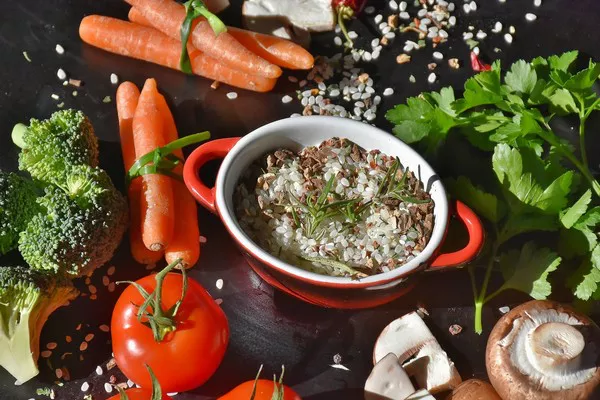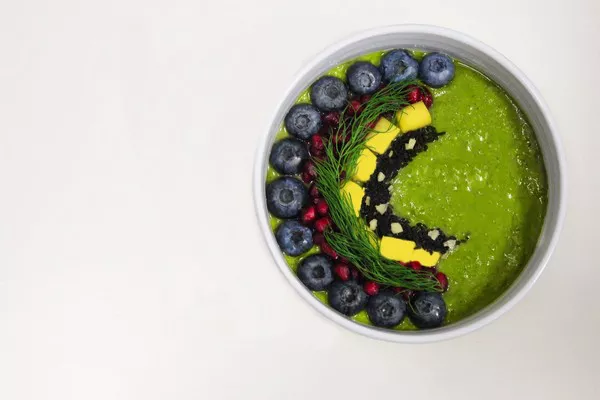Proteins are an essential component of our diet and play a crucial role in maintaining our overall health and well-being. In this comprehensive article, we will explore the diverse world of proteins, their sources, functions, and the importance of including them in our daily meals. From meat and dairy to plant-based options, we will delve into the wide array of foods that provide proteins to our bodies, ensuring that this vital nutrient remains at the forefront of our nutritional knowledge.
Understanding Proteins
Before we dive into the various food sources of proteins, let’s first understand what proteins are and why they are so essential. Proteins are macronutrients made up of amino acids, often referred to as the building blocks of life. These amino acids are the fundamental units that make up the complex structure of proteins, and they play a critical role in numerous bodily functions.
The Role of Proteins in the Body
Proteins are involved in an array of functions within the human body. First and foremost, they are responsible for tissue repair and growth. When we engage in physical activities that lead to muscle wear and tear, proteins step in to mend and build muscle fibers, making them stronger. This is why athletes and individuals looking to increase muscle mass pay close attention to their protein intake.
Moreover, proteins are crucial for the production of enzymes and hormones. Enzymes are biological catalysts that facilitate various chemical reactions in the body, such as breaking down food for digestion. Hormones, on the other hand, regulate various processes, including metabolism and the balance of fluids and electrolytes.
Protein Sources: The Meaty Options
One of the most well-known sources of proteins is meat. Meat, whether from land or sea, is packed with high-quality proteins. Beef, for instance, is a protein powerhouse. A 3-ounce serving of cooked beef provides approximately 21 grams of protein. Additionally, chicken, turkey, and pork are other excellent sources of animal-based proteins. These meats are not only rich in proteins but also supply essential vitamins and minerals, making them a well-rounded choice for protein consumption.
The Pescatarian’s Protein Paradise
For those who prefer to source their proteins from the sea, fish and seafood are an ideal option. Fish such as salmon, tuna, and cod are not only delicious but also protein-rich. Salmon, in particular, is renowned for its high protein content and is a fantastic source of omega-3 fatty acids, which offer numerous health benefits. A 3-ounce serving of cooked salmon provides around 21 grams of protein, making it an excellent choice for those looking to boost their protein intake while enjoying a flavorful meal.
Proteins Beyond the Animal Kingdom
While animal-based proteins are widely popular, it’s essential to recognize that proteins are not exclusive to the meat and seafood categories. In recent years, there has been a surge in interest in plant-based protein sources, driven by dietary preferences, ethical concerns, and environmental sustainability.
The Rise of Plant-Based Proteins
Plant-based proteins are derived from various sources, such as legumes, grains, nuts, and seeds. These proteins are not only nutritious but also often lower in saturated fat than their animal-based counterparts. One of the primary benefits of plant-based proteins is that they can be a healthier option for those looking to reduce their intake of saturated fat and cholesterol.
Legume Power: Protein-Packed Beans and Lentils
Legumes, including beans, lentils, and chickpeas, are some of the most protein-rich plant-based foods available. They are not only a great source of protein but also high in dietary fiber, which aids in digestion and helps maintain a feeling of fullness. A single cup of cooked black beans contains approximately 15 grams of protein, making it an excellent choice for both vegetarians and vegans seeking protein alternatives.
The Grain Game: Quinoa and Beyond
Grains are another category of plant-based proteins that should not be overlooked. Quinoa, in particular, is often referred to as a “superfood” due to its impressive nutritional profile. A cup of cooked quinoa provides roughly 8 grams of protein, along with essential amino acids that are vital for the body. Other grains like brown rice and whole wheat pasta also contribute to your daily protein intake, albeit in slightly smaller amounts.
Nuts and Seeds: Tiny Packages of Protein
Nuts and seeds are not only a great source of healthy fats but also contain notable amounts of proteins. Almonds, for example, are renowned for their protein content, offering around 6 grams of protein per ounce. Similarly, chia seeds and hemp seeds are tiny powerhouses of protein, making them popular choices among those following a plant-based diet.
Dairy Delights: Milk, Cheese, and Yogurt
Moving back to animal-based options, dairy products are another excellent source of proteins. Milk, cheese, and yogurt are rich in both casein and whey proteins. Casein, a slow-digesting protein, provides a steady release of amino acids, making it an ideal choice for those seeking sustained protein intake. Whey protein, on the other hand, is quickly absorbed by the body and is often favored by athletes for post-workout recovery.
Proteins for Vegetarians and Vegans
Individuals following a vegetarian or vegan diet have a wealth of plant-based protein options to choose from. However, it’s essential to be mindful of protein quality and variety to ensure that all essential amino acids are included in the diet. This can be achieved by combining different plant-based protein sources.
The Power of Tofu and Tempeh
Tofu and tempeh, both derived from soybeans, are staples in many vegetarian and vegan diets. Tofu is a versatile protein source that takes on the flavors of the ingredients it’s cooked with. A 3.5-ounce serving of firm tofu provides approximately 8 grams of protein. Tempeh, a fermented soybean product, is even higher in protein content, offering around 16 grams of protein per 3.5-ounce serving. These soy-based products are also excellent sources of calcium and iron, making them valuable additions to a plant-based diet.
The Protein-Packed Potential of Seitan
Seitan, often referred to as “wheat meat” or “wheat gluten,” is another plant-based protein option. It is made from gluten, the protein found in wheat. Seitan is incredibly rich in protein, with about 25 grams of protein per 3.5-ounce serving. Due to its meaty texture and ability to absorb flavors, it’s a favorite among many vegetarians and vegans for creating meat substitutes in various dishes.
Exploring Protein-Rich Vegetables
Vegetables, while not as protein-dense as legumes or nuts, still contribute to your daily protein intake. Some vegetables are surprisingly high in protein, such as broccoli and spinach. A cup of cooked broccoli contains approximately 3 grams of protein, while a cup of cooked spinach offers around 5 grams. These vegetables not only provide protein but also an abundance of essential vitamins and minerals.
Proteins in Grains: Beyond Quinoa
In addition to quinoa, several other grains offer substantial amounts of protein. Amaranth, for instance, is a gluten-free grain that boasts about 9 grams of protein per cup of cooked grain. It’s also rich in fiber, making it a wholesome choice for those seeking both protein and dietary fiber in their diets.
The Protein Content of Plant-Based Milk Alternatives
For individuals who are lactose intolerant or choose to avoid dairy, there is a growing selection of plant-based milk alternatives. Almond milk, soy milk, and pea milk are just a few examples. While these milk substitutes may not naturally contain as much protein as cow’s milk, many brands fortify their products with added protein, ensuring that you can still meet your protein needs.
Protein Fortification: A Modern Solution
Protein fortification is not limited to plant-based milk alternatives. In recent years, many food products, from cereals to snacks, have been fortified with additional protein. This trend caters to consumers seeking convenient ways to increase their protein intake. However, it’s essential to be mindful of the overall nutritional quality of these fortified products, as they may also contain added sugars and preservatives.
Eggs: A Nutrient-Rich Protein Source
Eggs are often referred to as nature’s perfect food due to their impressive nutritional profile. They are an exceptional source of high-quality protein, containing all essential amino acids. A single large egg provides about 6 grams of protein, making them a convenient and versatile protein source. Eggs are also rich in vitamins and minerals, including vitamin B12, choline, and selenium.
Protein for Weight Management
Proteins play a crucial role in weight management and satiety. Including an adequate amount of protein in your meals can help control appetite and reduce overall calorie intake. When you consume proteins, they trigger the release of hormones that signal fullness to the brain. This helps prevent overeating and can aid in weight loss or maintenance.
Proteins and Muscle Health
For those who engage in regular physical activity or strength training, protein is vital for muscle health and recovery. When you work out, you create microscopic tears in your muscle fibers. Protein steps in to repair and rebuild these muscle tissues, leading to muscle growth and increased strength over time. Many athletes and bodybuilders prioritize their protein intake to support muscle development and recovery.
Proteins and Aging
As we age, our protein needs may change. Older adults may require more protein to maintain muscle mass and overall health. Adequate protein intake can help prevent muscle loss, which is common in aging individuals. Additionally, protein-rich foods can aid in maintaining bone health and supporting the immune system, both of which are essential for healthy aging.
Proteins and Special Diets
Proteins can be adapted to various dietary preferences and restrictions. Whether you follow a low-carb, low-fat, gluten-free, or other specialized diet, there are protein options available to meet your needs. For example, individuals on a ketogenic diet can opt for fatty cuts of meat, while those on a low-fat diet may choose leaner protein sources like poultry or fish.
Proteins and Food Allergies
Food allergies can significantly impact dietary choices, but even individuals with allergies have protein options available. For those allergic to dairy, there are plenty of plant-based milk alternatives. Individuals with nut allergies can turn to seeds like sunflower seeds as a protein source. It’s essential to explore alternative protein sources to ensure a balanced and allergen-safe diet.
Proteins and Ethical Choices
Many people choose to adjust their diets based on ethical concerns, such as animal welfare and environmental sustainability. Plant-based proteins have gained popularity among individuals who wish to reduce their impact on the environment and avoid contributing to animal exploitation. These choices are driven by a desire to align one’s diet with their values.
Proteins and Sustainable Eating
Sustainability is a growing concern in the modern world. The production of animal-based proteins, particularly meat, has a significant environmental impact in terms of greenhouse gas emissions, water usage, and deforestation. As a result, there is a growing emphasis on sustainable protein sources.
Insects: A Protein Source of the Future
Insects, such as crickets and mealworms, are gaining attention as a sustainable protein source. They are highly efficient at converting feed into protein and require significantly less land, water, and resources compared to traditional livestock. In many cultures, insects are already part of the diet, and they are gradually making their way into Western diets as well, often in the form of protein-rich powders and snacks.
Lab-Grown Proteins: The Future of Sustainability
Advancements in biotechnology have led to the development of lab-grown or cultured proteins. These proteins are produced without the need for traditional farming and have a much smaller environmental footprint. While this technology is still in its early stages, it holds promise as a sustainable protein source for the future.
Protein Myths and Misconceptions
In our journey through the world of proteins, it’s essential to address common myths and misconceptions that surround this macronutrient.
Myth 1: You Can Never Have Too Much Protein
While protein is essential for overall health, excessive protein intake can strain the kidneys and lead to dehydration. It’s crucial to consume an appropriate amount of protein based on your age, activity level, and health status.
Myth 2: Plant-Based Proteins Are Incomplete
Contrary to popular belief, most plant-based proteins can provide all essential amino acids when combined in a varied diet. Complementary proteins, such as beans and rice, can ensure a complete amino acid profile.
Myth 3: All Proteins Are Created Equal
Proteins from different sources vary in their amino acid composition and nutritional content. Animal-based proteins tend to be more bioavailable, meaning they are easily absorbed by the body, while plant-based proteins may require more careful planning to meet nutritional needs.
Conclusion
In conclusion, proteins are an integral part of our diet, playing a vital role in maintaining health, supporting growth and repair, and contributing to overall well-being. Whether you choose to obtain your proteins from animal sources, plant-based options, or a combination of both, it’s essential to strike a balance that aligns with your nutritional goals, dietary preferences, and ethical considerations.
As we continue to explore and understand the diverse world of proteins, we can look forward to exciting developments in food science and technology. The future holds the promise of even more sustainable protein sources, innovative protein-rich foods, and a deeper appreciation for the role proteins play in our lives.
Incorporating a variety of protein sources into our diets not only ensures we meet our nutritional needs but also contributes to a more sustainable and ethical approach to food consumption. So, the next time you sit down for a meal, remember the importance of proteins and the vast array of delicious and nutritious options available to you. Whether you’re a meat lover, a plant-based enthusiast, or somewhere in between, there’s a world of proteins waiting to nourish your body and support your health.
[inline_related_posts title=”You Might Be Interested In” title_align=”left” style=”list” number=”6″ align=”none” ids=”2305,2368,778″ by=”categories” orderby=”rand” order=”DESC” hide_thumb=”no” thumb_right=”no” views=”no” date=”yes” grid_columns=”2″ post_type=”” tax=””]



































